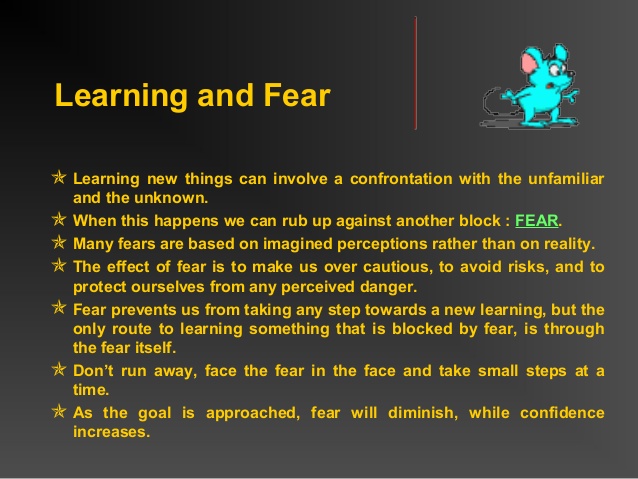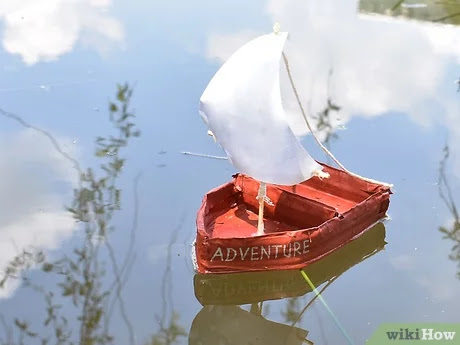LIBE 477 B: Module 9: SUMMARIZING AND DISCUSSING PHASE 2 TOPICS AND INTERESTS: THE WORLD AT OUR FINGERTIPS
As teacher librarians we have the world at our fingertips! I have learned it is our duty to be with the times and current in order to effectively share the world with others. Libraries are not only about books and research, libraries are a link to the outside world literally! We can travel across the world with technology especially lately since we have been reduced to communicating digitally due to Covid-19.
My interest lies in becoming a 21st-Century educator. This is not an easy feat. There are many barriers like remoteness, lack of technology, skills, equipment and access to training and professional development.
Many of the barriers can be overcome with the use of technology, willingness and the desire to learn. I have learned so much over the last term.
Explore: Areas I have explored include how to be a 21st-Century teacher, integrating STEM/STEAM into the classroom and the benefits of using digital technology to enhance student learning.
21st-Century Teacher: Take a Healthy Risk:
Being a 21st-Century teacher calls for an awareness that "global economies, new technologies, and exponential growth in information are transforming our society" (21st-Century Literacies: A Policy Brief, p.1). We need to be cognisant of our duty to prepare our students (and teachers) by taking an "integrated approach, helping students understand how to access, evaluate, synthesize and contribute to information (21st-Century Literacies, p. 5).
I take my role as a teacher librarian seriously and understand that "21st_century literacy-oriented teaching offers additional benefits to students, allowing them to incorporate the technology they increasingly use in their everyday lives, and which they will need to master in order to find success in tomorrow's workplace" (Collier, 2007, p. 4).
I aspire to find a balance when using technology and "tried and true methods of print literacy" (Collier, p. 6). Due to the remoteness of our community we don't have access to gadgets currently available so have to make do with what we have and share computers and other devices. "This does not mean that those students must be shut out of 21st-century literacies. Even if a classroom has but a single computer, if there is a web connection, students can still develop podcasts and set up classroom wikis" (Collier, p. 6).
I realize I need to adopt more of a 21st-century teacher attitude and provide choice and variety and include the use of technology as a way for students to communicate their learning. I also need to provide a balance between technology and print literacy as the cartoon above depicts.
Integrating STEAM into the Classroom:
Part of being a 21st-century teacher is learning how to integrate STEM/STEAM into my classroom and transforming my teaching practice. "A current trend in education is to build 21st-century skills (that is collaboration, creativity, critical thinking and communication)...[and] that STEAM related disciplines can lead to creative careers" (Cook, Bush & Cox, 2017, p. 86).
When beginning this project I went to our school resource room and found multiple STEM resources that I didn't know was there. Upon delving into the information I find the information is years old. The resource Destination Imagination, Supporting 21st-Century Learning was published in 2013. I found it to be still in the packaging and looking brand new.
I am sure the resources must have come past our desk at some point. But why weren't they used? Lack of training? Motivation? Interest? Too busy? Fear? For me? Probably all of the above. In so many cases we are "introduced" to the newest and coolest but don't get the training or professional development to "hook us" into adopting a new and more innovative and inspiring way of teaching.
We may also be "stuck in our ways." "Because most teachers are inclined to teach what they were taught, teachers may not eagerly embrace the idea of teaching STEM content due to confined preparation to teach STEM" (Nadelson, Callahan, Pyke, Hay, Dance, & Pfiester, 2013, p. 158).
I am keen to learn and change my practice. (As cited in Nadelson et. al) "Efficacy in teaching has been exposed as a major variable contributing to teacher and student success influenced by teachers' time on task, levels of enthusiasm and motivation" (p. 159).
I have started integrating lessons from the Destination Imagination: Supporting 21st Century Learning (2013) into my classroom. We began with the lesson "Instant Challenge: Aquarium, where students create a performance in which they show what happens inside and outside an aquarium. Students formed groups of 4 and most were instantly engaged. (Stay tuned for next blog where I will share more of how students were engaged).
I am willing to accept the challenge and have learned about important resources like "Jason Learning" that provides both free and at cost workshops and STEAM training. Recently I attended a workshop on The Art of Going Green https://drive.google.com/file/d/1IuWC79wioMnS-XbPNYLsjrWnbSzaJTWr/view which was a very interesting and innovative workshop. I can't wait to try out some of the art with my students.
Learned:
I have learned so much over the span of this course. I was reminded by my peers the importance of using Twitter as a research and connecting resource. Although I don't use Twitter a lot I was reminded of the value of using it as a resource thanks to Nicole Read's blog posts. https://blogs.ubc.ca/nreid/
Suzanne also shared a number of very interesting sites that I would like to explore further like Kahoot, Book Creator, QR Codes, Flip Grid, Google Earth, Stop Motion Studio and Chatter Pix Kids (to name a few) which I have briefly explored and would love to use with my class.
I have learned of the many programs that are available to us as educators to assist us in becoming 21st-century teachers. Many of the programs are free to access and useful in communicating students' learning between home and school.
One program that caught my interest is Freshgrade which I am keen to learn more about as a communication and collaboration tool between home and school.
I learned there are many, many programs to choose from like Google Classroom, READ WRITE THINK, and the Focused website https://bcerac.ca/, sifting through them to find ones that are most suitable to me and my students has been the difficult part. I have joined so many websites I honestly cannot keep track of all of them.
My takeaways or most prominent websites are:
Texthelp: https://www.texthelp.com/,
Twitter: https://twitter.com/hargrace48,
Freshgrade: https://freshgrade.com/freshgrade-classic/,
Jason Learning: https://jason.org/?gclid=CjwKCAjwgZuDBhBTEiwAXNofROkfGWE4uGuNg_uhuGwXRy6tw0kdNDQyMTMYqTM5wElFQjL4I9BYfhoCvgoQAvD_BwE
The Spiral Playbook for inquiry based learning: http://c21canada.org/wp-content/uploads/2016/10/Spiral-Playbook.pdf
and many, many more!
Shared: This is an area which requires improvement. I am not sure if it is because of lack of knowledge, fear, humbleness, or just being darn late with my assignments. Online learning is difficult for me. Without the human connection and in-class delivery I haven't been very good at getting to know my peers and their work and am lacking in sharing my own work.
 |
| https://www.slideshare.net/GodPunit/learning-process-30946662 |
Oddly enough, even though this is a sharing network, I hesitate to look at my peers work until I have completed my own assignments for fear of what I perceive as "cheating" or "borrowing ideas." I wait until I have completed my blog or discussion before going to read my colleagues blogs.
I need to learn to be more "social" and involved in others' learning. I am more accustomed to handing in an assignment that isn't necessarily shared with the rest of the class.
I am more than happy to share and have shared what I know about the Kurzweill program, services and professional development opportunities through SET BC, my growth and experience from attending this class and my humble ideas.
I am aware the opportunities are there to collaborate with my peers through Twitter, Blog Posts, Tuesday Night Hang-Outs, peer feedback and course discussions. I have been learning how to access Feedly and view my groups blogs and provide discussion and feedback.
I am looking forward to learning more and sharing my learning journey. It is like I am in a small rowboat trying to stay afloat. Nothing is going to keep me from making the finish line.
References
Collier, Lorna. (2007) The shift to 21st-century literacies. The Council Chronicle, p.4. Retrieved from http://lornacollier.com/The+Shift+to+21st+Century+Literacies.pdf
Cook, K., Bush, S., & Cox. (2017). Engineering encounters: From steam to stem. Science and Children 054(06), 86. https://doi.org/10.2505/4/sc17_054_06_86
Cook, K. & Bush, S. (2019). Structuring steam inquiries: Lessons learned from practice. In M. Swe Khine & S. Areepattamannil (Eds.), Steam education: Theory and Practice. Gewerbestrasse, Switzerland: Springer Nature Switzerland.
Destination imagination classroom edition: Supporting 21st-century learning. (2013). Toronto, ON: Pearson Canada Inc.
Freshgrade [Web page]. (n.d.). Retrieved from https://freshgrade.com/
In the field: On and offline with Jason, grades 4-10 [Web page]. (n.d.). Retrieved from https://www.eventbrite.com/e/in-the-field-on-offline-with-jason-grades-4-10-registration-134447896277?internal_ref=login
Kaser, L., & Halbert, J. (2017). The spiral playbook: Leading with an inquiring mindset in school systems and schools. C21 Canada.
Kurzweill 3000 Training [Web page]. (n.d). Retrieved from https://www.arc-bc.org/training/
Nadelson, L. S., Callahan, J., Pyke, P., Hay, A., Dance, M. & Pfiester, J. (2013). Teacher stem perception and preparation: Inquiry-based STEM professional development for elementary teachers. The Journal of Educational Research, 106(2), 8. Retrieved from https://www.jstor.org/stable/43824080
The art of going green [Web page.] (n.d.). Retrieved from https://drive.google.com/file/d/1IuWC79wioMnS-XbPNYLsjrWnbSzaJTWr/view
21st-century literacies: A policy research brief produced by the national council of teachers of English (2012). Retrieved from https://ncte.org/statement/21st-century-literacies-a-policy-research-brief/




















Detailed and authentic reflection on all the things you've learned, explored, implemented and plan to use in the future. Good highlights of your peers' explorations, and connections you've made with their sharing and findings. Good goal setting for the future, with your classroom, school and community and what you can do to balance the needs with the abilities. Overall, a very personalized and authentic reflection that summarizes the growth and learning you've experienced over the last few months.
ReplyDeleteWhat a detailed reflection Roberta. I too have found reading other classmates blogs posts to be full of great suggestions and "tried and true" websites and I was happy my suggestions resonated with you. If I could be so bold as to suggest one more - I use diigo.com to keep track of websites I think are amazing or just don't want to loose track of. It's accessible anywhere with internet access, and unlike the bookmarks or favourites tab on a computer, is not limited to that one computer. This has been very helpful for me this year as I am in 2 schools and work with 5 different computers on a daily basis. With this website, I can tag my favourites sites and access them from anywhere. All the best in your explorations and with your future courses!
ReplyDelete